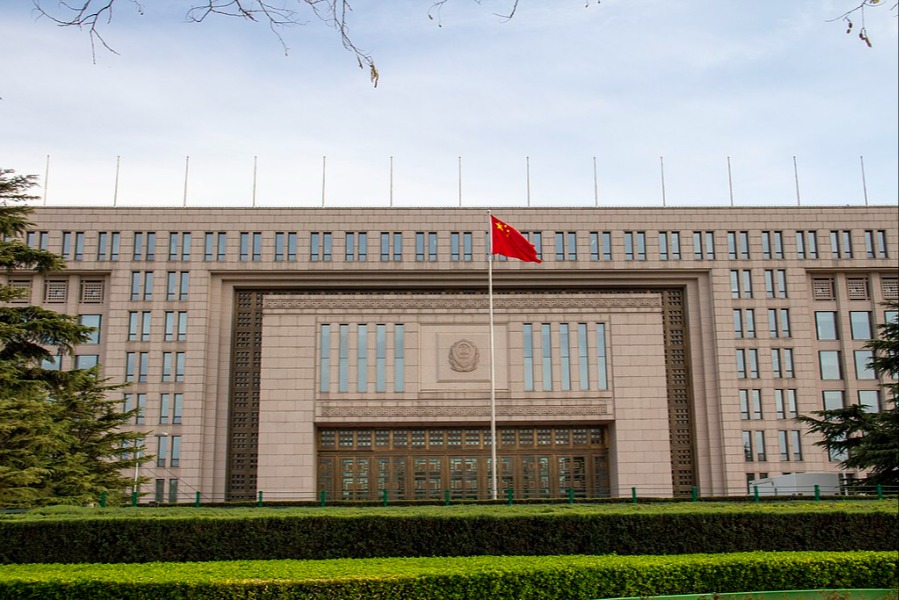What’s Going on with Sanctions on Russia?
In August 2017, the Senate passed the Countering America’s Adversaries Through Sanctions Act 98-2; the House voted 419-3.
Published by The Lawfare Institute
in Cooperation With

In August 2017, the Senate passed the Countering America’s Adversaries Through Sanctions Act 98-2; the House voted 419-3. The Sanctions Act, which serves as a legislative counterpoint to candidate Trump’s rapprochement to Russia during the 2016 election, codified responses to Russia’s “bad actions”—actions that Congress feared the new president would not address, such as Russian interference in elections and ongoing activity in Crimea.
Despite the signing of this act and more recent indications that the administration is willing to put some pressure on Russia, Congress should fulfill its oversight role and remain a firm critic of the administration’s approach.
On Jan. 29, a State Department spokesperson announced that the administration would not be imposing additional sanctions against entities doing business with the Russian defense or intelligence sector. They reason that the Sanctions Act itself is already “serving as a deterrent,” considering that foreign governments have since withdrawn or cancelled previously planned and announced purchases to the tune of “several billion dollars.” The State Department sent Congress a classified report covering the details of the decision but otherwise gave minimal public information regarding its findings.
The Sanctions Act also requires the administration to send Congress both classified and unclassified reports on Russian oligarchs and sovereign debt within 180 days. The reports are supposed to serve as a guide for Congress or the administration to apply future sanctions in response to bad actions by Russia. But the unclassified oligarch report submitted yesterday is not well curated, instead listing the most high ranking officials in the Russian government and all known Russian billionaires, regardless of ties to the Kremlin. Although the classified reports may include information that would indicate the administration is getting tough on Russia, the unclassified versions leave the public in the dark as to how sanctions decisions are being made and why.
This is not to say that the administration is acting outside of the ambit of its authority. According to Sec. 231(c) of the Sanctions Act, the president can delay imposing sanctions so long as “the person is substantially reducing the number of significant transactions.” State Department assertions that the Sanctions Act has incited a fear of sanctions sufficient to deter actors is, on one hand, exactly what policymakers would hope might happen. A perfect sanctions regime would deter an action or isolate an actor, prompting a change in behavior; the Iran sanctions regime is probably the best example of pushing a state to alter its behavior and come to the negotiating table. In the case of Russia, entities would halt investments with Russian defense and intelligence. Better actions should lead to the waiver or removal of sanctions.
But, in this case, exactly which actions have been deterred? If the sanctions have effectively prevented investment in the Russian defense and intelligence industries, does this mean that they have also effectively deterred bad behavior?
Russia continues to engage in the activities that led Congress to impose sanctions in the first place, such as repeated attempts to interfere in democratic elections. Democrats on the Senate Foreign Relations Committee recently published a report on Russian interference in European elections, which Evelyn Douek and Ed Stein analyzed. The report finds that Russia attempted to interfere with 19 European elections, with plans to weaken the NATO alliance and divide and separate Russian-speaking peoples from the rest of Europe. What’s more, CIA Director Mike Pompeo said this week that Russia is not lessening its attempts at subversion against our NATO allies and he expects Russia to try to influence the U.S. midterm elections.
Russian cyberattacks remain a concern as well. Over the weekend, news outlets in the Netherlands reported that Dutch intelligence spied on a Russian intelligence-linked hacking group called Cozy Bear. Reporters even speculated that the Dutch may be the European ally that informed the U.S. of the Russian DNC hacks. Within days of the report, Dutch banks and the Dutch taxation authority began experiencing denial of service (DDoS) cyberattacks. While Dutch authorities are not yet attributing the attacks to a particular actor, the timing of revelations and the DDoS attacks is reminiscent of the Russian-linked cyberattacks on Estonia in 2007 that occurred after Estonia decided to take down statues of a Soviet World War II memorial, as well as the Russian-linked cyberattacks on the Ukrainian power grid in 2015.
In fact, without further data, Russia’s ongoing bad actions suggest that our threat of sanctions has been ineffective. Congress should be skeptical that sufficient divestment occurred until it knows the scale of current investment and subsequent divestment. Congress, in its oversight role, should scrutinize the administration’s claim that additional sanctions are not necessary. For instance, the Sanctions Act does not define the term “substantial,” and leaves up to interpretation how much investment can still go on before sanctions are necessary. Congress should also request information on any possible sanctions evasion that may be taking place.
If the necessary details were not provided in the classified reports, members of Congress should hold hearings with decision-makers at State and Treasury to understand and assess the state of the Russian sanctions. There are members of Congress who reflect the skepticism I encourage here and, to resolve outstanding ambiguity, they should seek responses to the following questions:
-
How did State decide what divestment from Russian defense and intelligence industries justified the classification of “substantial” reduction in transactions?
-
What level of investment in those industries would justify applying sanctions?
-
What countries or persons continue to have major arms deals with Russia?
-
What, if any, attempts at sanctions evasions has the administration witnessed?
-
Have the Russians been deterred from acting upon its intentions to undermine the West as a result of the Sanctions Act, and if not, what could Congress do to pressure them to do so?
In addition to hearings, and assuming that the classified oligarch report does not give Congress the insight into Russian wealth that it hoped to have, Congress should also take steps to assure that Treasury has the time, manpower and resources to produce a more comprehensive oligarch report. The current unclassified list of the wealthy is so broad that it is unlikely to successfully “name and shame” bad actors. Congress could request a new, more detailed report that would serve Congressional intent to understand of who holds the wealth in Russia, especially the wealth gained through unsavory means. The unclassified portion of the oligarch report does not meet that goal.
Sanctions are in place because Congress witnessed Russian cyberattacks, election interference and actions in Ukraine. If these sanctions have altered Russian behavior, and the behavior of the individuals and entities who are likely do business with the worst Russian actors, the measures deserve praise. If not, Congress should guard American interests by acting in its oversight role to apply pressure on Russia where it can. So far, the unclassified information provided generates more questions than answers.





